National Medical Excellence Awards 2024
The National Medical Excellence Awards event
was held on 24 Sep 2024 at Pan Pacific Hotel Singapore with Minister for
Health, Mr Ong Ye Kung as the patron of the awards. The NMEA 2024 year marks
the 17th year of the event, with six individuals and two teams recognised for their outstanding contributions and achievements.
The evening saw the presence of about 270
guests at the hotel venue to celebrate the success of the awardees for
innovations in healthcare and community care, patient safety, clinical quality,
biomedical research as well as training and education of clinicians.
The National Medical Excellence Awards 2024
event was jointly organised by the MOH Holdings and National Healthcare Group,
with support from Ministry of Health, Lee Kong Chian School of Medicine, SingHealth
Duke-NUS Academic Medical Centre, National University Health System and Agency
for Integrated Care.
NATIONAL OUTSTANDING CLINICIAN AWARD 2024
Professor Tan Ban Hock (陈万福)
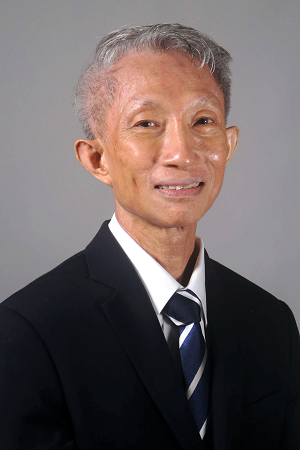
Chief Quality Officer
Singapore General Hospital
Senior Consultant
Department of Infectious Diseases
Singapore General Hospital
Physician Faculty
SingHealth Internal Medicine and SingHealth
Infectious Diseases Senior Residency
Programme
Clinical Professor
Duke-NUS Medical School
Clinical Senior Lecturer
Yong Loo Lin School of Medicine
National University of Singapore
“For his dedication to patient care and his outstanding contributions to elevating the infectious diseases service in Singapore General Hospital to world-class standards.”
Professor Tan Ban Hock always puts his patients first. He has been a leader in infectious diseases (ID) and a champion for patient safety at Singapore General Hospital (SGH).
He began his career as one of the two ID physicians in the hospital, at a time when ID was not even a department. Through his tireless efforts, Professor Tan built and developed the ID department into one befitting a leading hospital. The ID department now runs a Transplant ID (TID) service, the Outpatient Parenteral Antibiotic Clinic, a Travel and Vaccination Clinic, and the Antibiotic Stewardship programme, in addition to providing regular inpatient and outpatient care. The department is actively involved in epidemic preparedness, oversees the isolation ward, and is increasingly recognised for its research. Professor Tan collaborates closely with microbiologists in the hospital in clinical ID, which has significantly shaped the practice in SGH and beyond.
Over the years, he recruited and nurtured successive cohorts of ID specialists who are now prominent physicians in both public and private institutions. Many junior doctors express keen interest to join the ID department to work with Prof Tan and the senior clinical team trained by him.
With his special interest in caring for immunocompromised patients, Professor Tan’s efforts entrenched TID as a quaternary service in SGH. He has been a local pioneer in this field, closely involved in the writing and the revision of many ID protocols in various transplant programmes in SGH. The TID team attracts doctors beyond SGH, including those from several Asian countries. He has been widely recognised for his efforts in TID, serving as President of the TID section of The Transplantation Society from 2021 to 2023. From TID, he branched into medical mycology, where he demonstrated knowledge and leadership qualities and was made Co-Chair of the Asia Fungal Working Group (AFWG), a position he held from 2008 to 2018.
Professor Tan’s foresight in developing epidemic preparedness enabled SGH to respond nimbly to international outbreaks, such as during the MERS, H7N9, and Ebola events. In the early days of the COVID-19 pandemic, he conceived and successfully championed the concept of the Acute Respiratory Infections wards to segregate patients with suspicious symptoms outside the official definitions of a suspected case.
As Chief Quality Officer, Professor Tan commits himself to infection prevention and patient safety, introducing innovations and changes to the existing structures to enhance governance. He brought about several changes to the way a Root Cause Analysis (RCA) was conducted, and introduced the concept of a thematic RCA, where events that clustered around a theme were reviewed in aggregate, so that a bigger picture could emerge, thus allowing for impactful change. As a practising clinician, he connects easily with ground staff, thus bringing to bear on them his personal attention to safe practices.
Knowing intuitively that research would elevate the department, Professor Tan sent his first two Registrars on research fellowships abroad. He supported his doctors when they elected to pursue research careers. The result is an outstanding research team in the ID Department, which collaborated with Duke-NUS Medical School to form the Viral Research and Experimental Medicine Centre.
Professor Tan is also committed to teaching and training, which is evident through his role as a keen bedside tutor. He has won numerous Best Teacher/Best Faculty awards and is a regular speaker at local and international conferences. Working with the Australasian Society for Infectious Diseases through the AFWG, he jointly started the Fungal Frontiers webinar series, bringing mycology education to the region.
Above all, Professor Tan remains a clinician at heart. As a doctor, he continues to be respected for his bedside skills and is regularly consulted on the most difficult clinical cases in and beyond SGH. He practises holistically, giving his best to patient care. In recognition of his skills and efforts, he was awarded the top-tier Superstar award at the SingHealth Service Quality Awards 2013, conferred Master Physician (Internal Medicine) in 2017, and was the youngest inductee of the inaugural Duke-NUS Hall of Master Academic Clinicians in 2021. His unwavering dedication to patient care and his significant impact on the ID landscape make him a true clinician leader.
For his dedication to his patients and his outstanding contributions to elevating the infectious diseases service in Singapore General Hospital to world-class standards, Professor Tan Ban Hock is awarded the National Outstanding Clinician Award 2024.
NATIONAL OUTSTANDING CLINICIAN SCIENTIST AWARD 2024
Professor Jerry Chan Kok Yen (陈国贤)
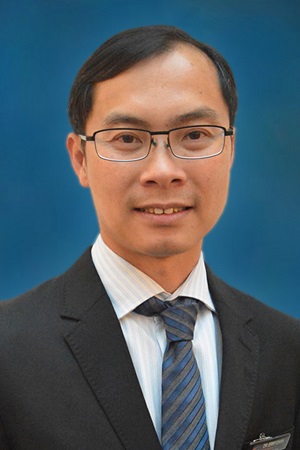
Senior
Consultant
Department
of Reproductive Medicine
KK
Women’s and Children’s Hospital
Director
KK
Research Centre
KK
Women’s and Children’s Hospital
Vice
Chair (Research)
SingHealth
Duke-NUS Obstetrics and Gynaecology Academic Clinical Programme
Director
SingHealth
Duke-NUS Maternal and Child Health Research Institute
“For his innovative discoveries and translational research, and dedication in transforming the maternal and child health research community in Singapore and globally.”
Professor Jerry Chan Kok Yen is a clinician scientist in Obstetrics and Gynaecology. His expertise lies in unravelling the scientific mysteries of diseases as well as developing and implementing treatments in the realm of maternal and child health.
Professor Chan’s notable contributions include research on foetal stem cells and gene therapies targeting inherited diseases, breakthroughs in foetal immunology, advances in preconception health, and pioneering contributions in reproductive medicine.
Foetal stem cell/gene therapy can be an effective cure for inherited diseases that cause irreversible damage to the baby before birth. Professor Chan and an international team performed a foetal stem cell transplant to cure a baby of brittle bone disease, a genetic disease that causes stunted growth and repeated painful fracturing. Together with other scientists, he also discovered that Gaucher disease, a neurodegenerative disease, can be prevented with foetal gene therapy. He is now pushing the boundaries with the use of nanoparticles to deliver gene editing therapies for a range of inherited genetic diseases.
Additionally, Professor Chan is part of a team of local and international scientists who have advanced the understanding of the developing foetal immune system. Some of their discoveries include the early development of foetal immunity from the second trimester, the molecular basis for maternal-foetal transmission of allergies, the early foetus’ response to bacteria, and the ability of liver cancer cells to mimic foetal-like cells to evade immune rejection. These findings have enabled global scientists and researchers to understand the optimal window for foetal intervention to achieve the best treatment outcomes.
As the Director of the SingHealth Duke-NUS Maternal and Child Health Research Institute, Professor Chan champions a life-course approach towards better population health. He leads his teams to identify the best opportunities to prevent and control diseases at key stages of life, from preconception through pregnancy, infancy, childhood, and adolescence to adulthood. This strategy aims to transform population health, by setting a strong foundation at the preconception stage for a healthy pregnancy, to give the baby the best start in life. One of his main programmes is HELMS (Healthy Early Life Moments in Singapore), an interventional study designed to improve the health of women planning pregnancies.
Professor Chan’s interest in addressing the global decline in fertility rates has led him to pioneer numerous advances in the field. This includes using letrozole, traditionally used to treat breast cancer, to treat oligozoospermia (low sperm count) as an alternative to in vitro fertilisation (IVF), and the development of a device to automate IVF laboratory processes.
Drawing on an outstanding track record of leading and contributing to impactful research projects, Professor Chan has secured over $100 million in research funding, including $6 million in 2023 under the Singapore Translational Research Investigator Award, National Medical Research Council’s pinnacle talent award for clinician scientists. His extensive publication record comprises over 300 articles in peer-reviewed journals, many of which are globally renowned high-impact factor publications including Cell and Nature. Additionally, he is recognised as one of the globally Highly Cited Researchers by the Institute for Scientific Information at Clarivate.
To build a robust community of clinician scientists and investigators dedicated to driving innovation and translational cures in healthcare, Professor Chan mentors and supervises numerous researchers, many of whom have gone on to make significant contributions in their respective fields. He was also the immediate past president of the Singapore Obstetrics and Gynaecology Network which promotes synergy and high-quality translational research among public maternity hospitals.
For his innovative discoveries and translational research, and dedication in transforming the maternal and child health research community in Singapore and globally, Professor Jerry Chan Kok Yen is awarded the National Outstanding Clinician Scientist Award 2024.
NATIONAL OUTSTANDING CLINICIAN SCIENTIST AWARD 2024
Professor Jodhbir Singh Mehta
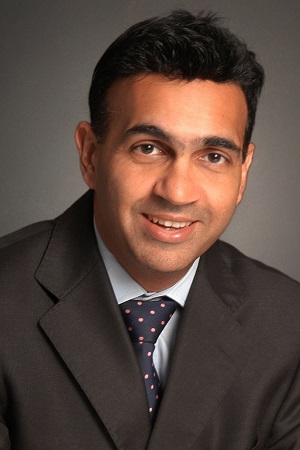
Deputy Chief Executive Officer (Research) and Senior Consultant
Singapore National Eye Centre
Executive Director
Singapore Eye Research Institute
Academic Vice-Chair (Research)
SingHealth Duke-NUS Ophthalmology & Visual Sciences
Academic Clinical Programme
“For his remarkable contributions to
global ophthalmology, and unwavering dedication to research and innovation and
leading the next generation of ophthalmic professionals.”
Professor Jodhbir Mehta is a highly accomplished clinician
scientist who has made significant contributions both internationally and in
the Asian Pacific region. Clinically, he is one of the leading specialists in
the world on corneal diseases and refractive surgical procedures, while
academically he has demonstrated a remarkable track record in publications and
securing competitive research grant funding. His research interests span across
all aspects of corneal external disease and refractive surgery, with corneal
transplantation research as the key focus.
He currently holds leadership positions such as the Deputy
Chief Executive Officer (Research), Distinguished Professor in Clinical
Innovation in Ophthalmology, Singapore National Eye Centre (SNEC) and Academic
Vice-Chair (Research) with the SingHealth Duke-NUS Ophthalmology and Visual
Science Academic Clinical Programme. He holds concurrent appointments as
Executive Director of the Singapore Eye Research Institute (SERI) and heads the
Tissue Engineering and Cell Therapy Research Group at SERI. He also serves as
Senior Consultant and former Head of the Cornea and External Eye Disease
Department at SNEC. Additionally, he is a tenured Distinguished Professor at
the Duke-NUS Medical School.
Directing a strong multi-disciplinary team and partnering a
wide network of collaborators, Professor Mehta has driven various research
projects successfully, such as developing new instruments for keyhole corneal
transplantation, new artificial corneal devices, lenticule implantation for
stromal enhancement, sustained drug delivery devices for allergic eye diseases,
and new laser procedures for the cornea and ocular surface. Many of his
projects have produced breakthroughs and patents with high translational
potential.
Professor Mehta exhibits a prolific publication record,
with over 520 peer-reviewed papers in acclaimed international journals and has
authored over 24 book chapters. He has a Hirsh index of 73 with over 20,500
citations. He has published in top journals such as The New England Journal
of Medicine, The Lancet, The Lancet Respiratory Medicine, Nature
Biomedical Engineering, Nature Review Disease Primers, Nature
Communications, as well as high impact eye journals such as Progress in
Retinal and Eye Research, Ophthalmology. He has filed 24 patents from his
research work, of which six have been commercialised and licensed to companies.
These include an antibody to identify corneal endothelial cells, a nanoparticle
coating for artificial cornea device, and a liposome delivery system for
sustained delivery of tacrolimus.
As a leader of one of the top research programmes at SERI,
he has received several competitive research grants, achieving over $15 million
as Principal Investigator. He is also the recipient of the Clinician Scientist
Award for Senior Investigators of $3.6 million, awarded by the National Medical
Research Council (NMRC) to outstanding clinician scientists to carry out
internationally competitive translational and clinical research, bringing bench
discoveries to bedside applications. As a further reflection of his high
standing in the global ophthalmology community, he is currently ranked first in
the world for expertise in Cornea and second for Refractive Surgery by
Expertscape. He has given over 350 invited lectures and 19 named lectures and
also serves on the editorial board of several ophthalmic and visual sciences
journals.
Beyond research, Professor Mehta is a committed educator.
Apart from lecturing and teaching various local and international courses, he
also supervises and mentors junior clinicians, fellows (over 30 local and
international fellows), researchers (12 PhD and MSc students) and undergraduate
students. Several of his mentees have received NMRC awards like the Transition
Award, the Clinician Scientist Award, and New Investigator Grant, and also
taken on leadership roles in cornea departments and the Singapore Eye
Bank.
Professor Mehta has received many international awards for
the excellent contributions and achievements from his research, clinical and
educational endeavours. Some of his accolades include the Nakajima Award (Asia
Pacific Academy for Ophthalmology, 2013), Senior Achievement Award (American
Academy of Ophthalmology’s, 2017 and 2023) Doug Coster Lecture (Australia and
New Zealand Cornea Society, 2018), Charles Tilett Lecture (Fuchs Society, USA,
2020), Casebeer Award (International Society of Refractive Surgery, American
Academy of Ophthalmology, 2020), Charles McGhee Medal (British Society for
Refractive Surgery, Oxford, UK, 2023), Senior Achievement Award (Asia-Pacific
Academy of Ophthalmology, 2023), and the ACE Award ( Asia-Pacific Association
of Cataract and Refractive Surgeons, 2023). He is also the current
Vice-President of the US Corneal Society.
For his remarkable contributions to global ophthalmology,
and unwavering dedication to research and innovation and leading the next
generation of ophthalmic professionals, Professor Jodhbir Singh Mehta is
awarded the National Outstanding Clinician Scientist Award 2024.
NATIONAL OUTSTANDING CLINICIAN MENTOR AWARD 2024
Professor Tan Suat Hoon (陈雪芬)
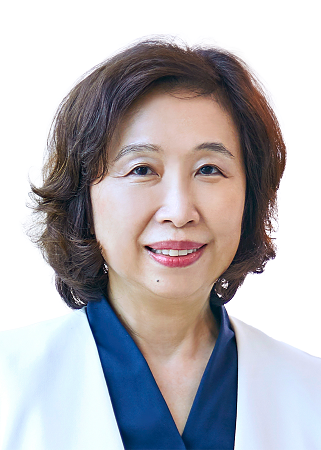
Senior
Consultant
National
Skin Centre
Adjunct
Professor
Lee
Kong Chian School of Medicine
Nanyang
Technological University
Clinical
Associate Professor
Yong
Loo Lin School of Medicine
National
University of Singapore
Adjunct
Associate Professor
Duke-NUS
Medical School
“For her outstanding mentorship and
judicious leadership in developing a pipeline of competent clinicians and
leading scientists, and elevating the dermatology specialty in Singapore and
beyond.”
In a career spanning more than three decades, Professor Tan
Suat Hoon has consistently demonstrated excellence in clinical practice, as
well as a deep commitment to mentoring the next generation of clinician leaders
and the creation of an enabling environment for research to advance the
dermatology specialty. Through her tenure as Deputy Director from 2004 to 2013,
and Director from 2014 to 2024 of the National Skin Centre (NSC), Prof Tan was
judicious in identifying key needs of subspecialty development and ensuring a
sustained pipeline of trained dermatologists. She also gave unstinting support
to the pursuit of professional development and research endeavours by clinician
scientists, galvanising them to take on large-scale collaborative efforts,
backed by national and National Healthcare Group (NHG) funding, that set them
on a path to making substantive headway in translational research for skin
health.
Widely recognised as a pioneer and expert in establishing
the subspecialty of dermatopathology and developing the training programme for
it in NSC, Professor Tan grew the unit to a team of five highly trained
dermatopathologists, raising Singapore’s international standing in this field
and attracting numerous visiting fellows from the region to undertake training
programmes and fellowships in dermatopathology. Professor Tan also guided and
nurtured clinicians in NSC’s cutaneous lymphoma unit, another subspecialty she
spearheaded, to ably run the clinic independently. Her approach to mentorship
is characterised by a deep personal investment in her mentees' success,
providing them with not only clinical and research guidance but also career and
personal development support. Several of these clinicians have grown to become
known and respected names in areas including photobiology, epidemiology, health
utilities and health services research, and atopic dermatitis, and contributed
to impactful translational research in these areas. They have described her as
an inspiring role model who embodies the highest standards of professionalism,
empathy and dedication.
Imbuing the national specialty centre with strong research
ethos, Professor Tan was instrumental in advising and sharpening key problem
statements and identifying unmet clinical needs. She played a pivotal role in
nurturing clinician scientists before they could independently secure
competitive grants from the National Medical Research Council (NMRC), by
ring-fencing institutional reserves to provide salary and administrative
support for protected time for the budding clinician scientists to do research.
Following in her footsteps of being a successful principal investigator of
NMRC-funded projects, these clinician scientists would go on to secure
competitive NMRC grants of their own, including nearly $10 million in Open
Fund-Large Collaborative Grant awarded in 2023. Under her leadership, four NSC
clinician scientists clinched the NMRC talent awards, including the Clinician
Scientist Award and Transition Award.
Today, in addition to her clinical work, Professor Tan
regularly teaches at Continuing Medical Education rounds and is consulted on
complex cases for dermatopathology and lymphoma diagnosis and management. She
has worked with and guided senior residents and subspecialty teams to formulate
management guidelines for evidence-based treatment, contextualised to local
needs and cost effectiveness.
During her time as Director of NSC, Professor Tan played an
instrumental role in the development of the new NSC building. Beyond expanding
and modernising clinics, she also launched the Skin Research Clinic, a
dedicated space for patient-involved research and trials, enabling better use
of cutting-edge methods such as non-invasive skin imaging to uncover new
discoveries about diseases and expand treatment pipelines. She was responsible
for major accessibility enhancements including provisions for elderly patients
and persons with disability, earning NSC the Universal Design Mark (Gold Award)
from the Building and Construction Authority. With a comprehensive range of
subspecialty services and serving about 70 percent of dermatology outpatient
attendance among public healthcare institutions in Singapore, NSC has
established itself as a reputable dermatology centre locally and
regionally.
The impact of Professor Tan’s leadership extends well
beyond NSC. She has been responsible for bringing international visiting
experts to Singapore under the Health Manpower Development Plan, giving
dermatologists in the public and private sector the opportunity to benefit from
international exchange and best practices. Most recently, she was elected as
the President of the Asian Society of Dermatopathology with her term running
from 2023 to 2025, in recognition of her efforts in advancing the subspecialty in
the region. Nationally, she has chaired the Residency Advisory Committee in
Dermatology since 2015. In the formative years following the landmark
establishment of the Skin Research Institute of Singapore, she played an
important role in shaping priority areas and getting key projects off the
ground as a member of the steering committee from 2015. She was also Vice
President of the national organising committee for the World Congress of
Dermatology when it took place in Singapore in 2023, attracting 12,000 delegates.
For her outstanding mentorship and judicious leadership in
developing a pipeline of competent clinicians and leading scientists, and
elevating the dermatology specialty in Singapore and beyond, Professor Tan Suat
Hoon is awarded the National Outstanding Clinician Mentor Award 2024.
NATIONAL OUTSTANDING CLINICIAN EDUCATOR AWARD 2024
Associate Professor Gerald Chua Seng Wee (蔡胜伟)
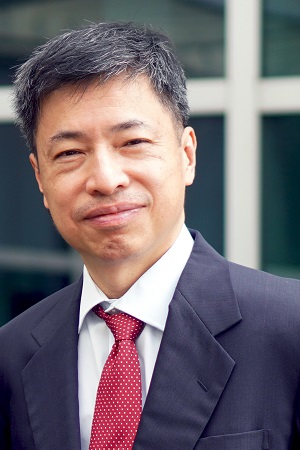
Senior
Consultant
Division
of Respiratory Medicine,
Department
of Medicine
Ng
Teng Fong General Hospital
Clinical
Associate Professor
Department
of Medicine
Yong
Loo Lin School of Medicine
National
University of Singapore
“For his visionary leadership, unwavering
dedication, and exceptional mentorship in internal medicine, respiratory
medicine and intensive care medicine, and his pivotal role in the teaching of
clinical crisis resource management and high-stakes clinical interactions for
healthcare professionals.”
Associate Professor Gerald Chua Seng Wee has taught
numerous cohorts of medical students and doctors in training in internal
medicine, respiratory medicine and intensive care medicine – since the start of
his career, when he graduated in 1994 from NUS Medicine and attained membership
of the Royal College of Physicians (UK) in 1999.
Starting in 2000 as a registrar in National University
Hospital (NUH), he pioneered – together with his consultants – the use of
medical simulation to teach Crisis Resource Management to multi-professional
clinical teams. Over the years, these workshops have been honed and expanded
regionally to healthcare professionals and trainers in Malaysia, Thailand,
India, Sri Lanka and China.
In his roles as Residency Associate Designated
Institutional Official of National University Health System, Associate Dean and
Education Director of Alexandra Hospital (AH), Vice Chairman Medical Board,
Clinical Education and as Chairman, Medical Board of Ng Teng Fong General
Hospital (NTFGH), he oversaw the establishment and expansion of undergraduate
and postgraduate medical training in AH, NTFGH and Jurong Community Hospital
from 2010 to 2024.
For doctors, nurses and allied health professionals in
JurongHealth Campus, he envisioned and implemented training programmes in
high-stakes clinical interactions – in partnership with EffectiveArts (USA),
and human factors for healthcare professionals – in partnership with MedLed
(UK).
Associate Professor Chua was teaching faculty and then
Executive Director at the Singapore Medical Association (SMA) Centre for
Medical Ethics & Professionalism from 2008 to 2019. Over the span of 12
years, he contributed significantly to the centre’s development and delivery of
programmes and workshops on medical professionalism, health laws and clinical
ethics. In recognition of these contributions, he received the SMA Merit Award
in 2021.
He has been directly involved in ICM training in Singapore
since 2009, first as a member then as the chair of the ICM Sub-Specialty
Training Committee (SSTC). He was part of the team that oversaw the inception
of ICM as an SAB-accredited sub-speciality and then the development from
scratch of a local training and assessment framework. Today the ICM SSTC
sustains a robust high-quality training pipeline that serves the needs of all
public health institutions in Singapore.
Associate Professor Chua has represented the NUS Division
of Graduate Medical Studies on the MRCP(UK) Part 1 Examination Board since
2015. On the board, he ensures the examination’s high standards of quality and
relevance to clinical practice for candidates worldwide are upheld.
Associate Professor Chua’s personal and collective
contributions to medical education, training and ethics have profoundly
impacted healthcare professionals and institutions locally and internationally.
We honour his exemplary service and commitment to advancing the field of
medicine.
For his visionary leadership, unwavering dedication, and
exceptional mentorship in internal medicine, respiratory medicine and intensive
care medicine, and his pivotal role in the teaching of clinical crisis resource
management and high-stakes clinical interactions for healthcare professionals,
Associate Professor Gerald Chua Seng Wee is awarded the National Outstanding
Clinician Educator Award 2024.
NATIONAL OUTSTANDING CLINICIAN EDUCATOR AWARD 2024
Adjunct Professor Lau Tang Ching (刘丹青)
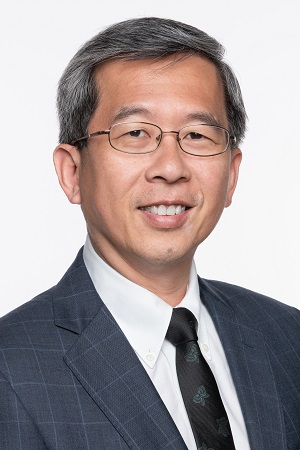
Senior Consultant
Division of Rheumatology
Department of Medicine
National University Hospital
Adjunct Professor
Department of Medicine
Yong Loo Lin School of Medicine
National University of Singapore
Vice-Dean (Education)
Yong Loo Lin School of Medicine
National University of Singapore
Group Director
Education Office
National University Health System
“For his multifaceted contributions to healthcare education, continuous learning and patient care, and a comprehensive and impactful career dedicated to shaping the future of healthcare professionals and inspiring health for all.”
Adjunct Professor Lau Tang Ching has been a dedicated leader and educator in the field of healthcare, particularly in the areas of medical education, continuous education and training, learner wellbeing, quality improvement, patient safety, and technology-enabled healthcare education. Throughout his career, he has held various leadership roles across multiple levels both locally and internationally, demonstrating a commitment to developing strategies to enhance clinical training and patient care.
In the realm of postgraduate and continuous education, Adjunct Professor Lau has played a pivotal role in establishing the Centre for Medical Excellence (CoME) under the National University Health System (NUHS) Academy. CoME focuses on equipping healthcare staff with future-ready skills through educational programmes covering data and digital literacy, quality improvement, behavioural and implementation science, and nurturing junior staff. Notably, he guided the development of the 'Starting on the Right Foot' course to aid junior doctors in transitioning to hospital life.
In the undergraduate domain, Adjunct Professor Lau spearheaded the development of an enhanced Bachelor of Medicine, Bachelor of Surgery (MBBS) curriculum, focusing on producing community-minded and humanistic physicians. Adjunct Professor Lau collaborated with other academic entities to continuously promote interdisciplinary and interprofessional education, leading to the successful implementation of the NUS Common Curriculum for Healthcare Professional Education and the introduction of two new minor programmes, one in Biomedical Informatics and another in Integrated Health, preparing learners for AI-driven digital medicine and interdisciplinary health efforts.
Recognising the role of technology in education, Adjunct Professor Lau advocates for its increased use. He supported the establishment of the Medical Education Technology and Enterprise Committee, promoting technology-enabled learning through virtual reality, augmented reality, and gamification. His leadership facilitated the adoption of online and technology-enabled learning during the COVID-19 pandemic.
Adjunct Professor Lau emphasises a holistic approach to clinician training, incorporating not only knowledge acquisition but also the cultivation of personal and professional values. He advocates for experiential learning and has actively participated in team activities to foster values-based education. His leadership extends to overseeing the NUHS Residency Programme and establishing new education programmes, such as the Medical Education Distinction Track in Residency. Cultivating a community of educators is another facet of Adjunct Professor Lau's work. He actively engages in medical education enhancement efforts, supports faculty development, and fosters collaboration across institutions. His efforts include establishing the NUHS Education Office to strengthen ties and improve pedagogy and curriculum design.
Adjunct Professor Lau's contributions were acknowledged through various awards and recognition on both institutional and national levels. His leadership in clinical practice and education has garnered accolades such as the NUS Teaching Excellence Awards, NUHS Teaching Excellence Award, and Public Healthcare Clinician Special Recognition Award. The NUS Yong Loo Lin School of Medicine, under Adjunct Professor Lau's strategic leadership, became the first local medical school to achieve national accreditation by the MOH-appointed external review team in October 2023. This accreditation affirms the quality of medical education at the institution, with the new curriculum being a highlighted strength.
Adjunct Professor Lau's achievements as a rheumatologist stand out, particularly in improving the care of osteoporosis patients through fracture liaison programmes and research. He has actively contributed to clinical practice guidelines, chaired committees, and played a pivotal role in patient advocacy through organisations like the National Arthritis Foundation.
For his multifaceted contributions to healthcare education, continuous learning and patient care, and a comprehensive and impactful career dedicated to shaping the future of healthcare professionals and improving patient outcomes, Adjunct Professor Lau Tang Ching is awarded the National Outstanding Clinician Educator Award 2024.
NATIONAL CLINICAL EXCELLENCE TEAM AWARD 2024
NEIGHBOURS FOR ACTIVE LIVING PROGRAMME
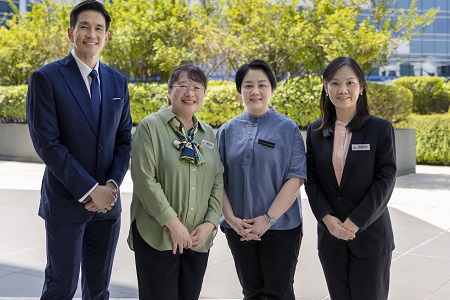
Ms Shirlyn Su Chang (苏畅)
Assistant Director
Department of Health and Social Integration
Changi General Hospital
Ms Cheryl Lau May Ling (刘美玲)
Senior Manager
Department of Health and Social Integration
Changi General Hospital
Dr Low Shou Lin (刘淑玲)
Senior Consultant
Department of Geriatric Medicine
Changi General Hospital
Mr Roy Chew Pei Wei (周培伟)
General Manager
South East Community Development Council
“For their outstanding dedication and innovation in transforming care delivery through integrating health and social care, empowering communities, and improving the quality of life of seniors in Eastern Singapore.”
With the visionary concept of activating the communities and practising place-based population care, the Neighbours for Active Living Programme (Neighbours) was pioneered by Changi General Hospital (CGH) in collaboration with the South East Community Development Council (SECDC) in 2013 to care for the community and address the socio-determinants of health by empowering seniors to get well, keep well and age well in the community, and fostering supportive relationships within communities. Through an innovative and integrated health and social model, Neighbours continues to play an instrumental role today in meeting the evolving healthcare needs of the population and fulfilling the roles required for holistic care.
An early champion of preventive care with a strong foundation in healthcare delivery in the community, CGH had identified the need for continual care and support for an increasing number of seniors in the community who lack adequate support to care for themselves or live alone, as social isolation and loneliness are associated with higher risks for health problems. A holistic person-centred approach was developed by the CGH Neighbours Community Care Team to ensure that seniors with complex health-social needs continue to receive timely care after their discharge from the hospital.
Comprising 50 healthcare professionals with a combination of health and social care expertise, the CGH Neighbours Community Care Team has conducted more than 100,000 care calls and home visits to assess seniors’ medical conditions and formulate care plans to support seniors in addressing long-term social and health care needs. They also built a robust and extensive community network of care support with national agencies, health and social care providers, and grassroots and faith-based organisations.
Underpinning the Neighbours’ proactive care approach is none other than the Chinese adage: “Close neighbours are better than distant relatives”. The programme leverages the close-knit ties of volunteers and neighbours to provide companionship and social support to vulnerable seniors while looking out for their wellbeing, thereby forging meaningful relationships that enrich everyone’s lives. The volunteers also alert the Neighbours Community Care Team of anomalies that may require medical attention and interventions. To some of these patients, the last mile of care was completed with the linking up of these volunteers who supported them in breaking their repeated hospital readmission patterns and encouraged them to stay healthy in their own community.
Over the past decade, Neighbours has provided place-based care and personalised support to over 14,000 residents spanning 18 communities in the eastern part of Singapore, in collaboration with over 70 community partners, significantly improving health outcomes and reducing hospital readmissions for seniors. Under the Neighbours Friend-A-Senior @ South East programme, over 900 volunteers from all walks of life have been trained and matched with seniors by the CGH Neighbours Community Care Team and SECDC, with 26,000 hours of volunteer hours put in to date.
The programme's success led to its adoption by the National Healthcare Group (NHG) in 2016, with training provided by the Neighbours Community Care Team. To better assist patients with health and social needs, Neighbours collaborated with SingHealth Polyclinics to pilot the Primary Care-Based Integrated Care Team (PACE-IT) programme at Marine Parade Polyclinic, and teamed up with two Active Ageing Centres on Assisted-Living pilot projects to help residents age-in-place.
With the launch of Healthier SG in 2023, Neighbours has seamlessly transitioned to a data-driven, place-based, population health approach, with its community care team members taking on the role of Wellbeing Coordinators to manage the care of the population in the east. The Neighbours team continues to be the anchor in the community, with community nurses, primary care doctors and partners connected in one health ecosystem. These teams are embedded within the communities, enabling them to leverage the established network to better coordinate care and support patients at home and in the community. By understanding the resources available, these place-based care teams can then identify emerging needs and gaps while strengthening the social fabric of the community.
For their outstanding dedication and innovation in transforming care delivery through integrating health and social care, empowering communities, and improving the quality of life of seniors in Eastern Singapore, the Neighbours for Active Living team is awarded the National Clinical Excellence Team Award 2024.
NATIONAL COMMUNITY CARE EXCELLENCE TEAM AWARD 2024
SOCIAL PRESCRIBING PROGRAMME
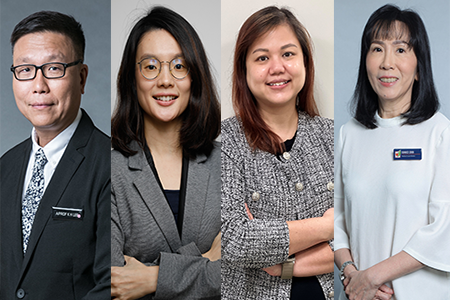
Associate Professor Lee Kheng Hock (李庆福)
Deputy Chief Executive Officer
Office of Community Engagement and Education
SingHealth Community Hospitals
Ms Adeline Kwan Li Feng (关丽凤)
Assistant Director
Community Engagement & Partnerships
SingHealth Community Hospitals
Ms Clara Poh Chui Yin (傅催堙)
Senior Manager
Education Office
SingHealth Community Hospitals
Ms Eunice Chin Khoon Eng (陈坤英)
Head
Medical Social Services
SingHealth Community Hospitals
“For their steadfast commitment and outstanding achievements in establishing and advocating for social prescribing practices locally to improve the wellbeing of Singaporeans.”
Social prescribing is a novel approach to healthcare that aims to improve health outcomes by supplementing biomedical clinical prescriptions with tailored social prescriptions for patients. To effectively address the complex needs of our ageing population, SingHealth Community Hospitals (SCH) has been adapting the practice of social prescribing since 2019 for patients across its community hospitals.
Wellbeing coordinators in SCH – the integral non-clinical workforce behind social prescribing – will conduct assessments to screen patients for their social determinants of health upon admission and formulate social prescriptions to be included into their care plans. To date, more than 3,000 patients have been screened for their social determinants of health, with suitable patients successfully linked to activities, resources and interest groups to improve their overall wellbeing.
Capability building has also been established as a critical component of overall sustainability of social prescribing. In November 2022, the SCH Office of Learning (SCHOOL) was launched to develop competencies and integrate health and social care across the ecosystem. A few signature programmes under SCHOOL are the SGUnited Skills course in Health and Social Care Coordination which trained over 40 Singaporeans for the health and social sectors, where at least a quarter of them have been deployed into health and social sectors; the WSQ-accredited course "Implementing Interventions in Health and Social Care" which has completed five runs for learners; and the “Introduction to Social Connector for Social and Lifestyle Interventions” course which will train all 900 Active Ageing Centre employees with social prescribing skillsets. Building capabilities in social prescribing was not limited to just the non-clinical workforce. In 2022, SCH partnered Duke-NUS Medical School to formally integrate social prescribing early into its medical curriculum for Year 1 students, so that the medical students can understand that social determinants are key drivers that influence patients’ health outcomes.
To further advocate and share best social prescribing practices amongst the local health and social sectors, the team organised the first Asia Pacific Social Prescribing Conference in 2022, which was attended by more than 1,000 participants, including international participants from Australia, Canada, Japan and the UK. The second edition of the conference will take place in November 2024.
For its social prescribing efforts, the team has received international attention and validation. The World Health Organization (WHO) has offered collaboration platforms to SCH to share about its social prescribing practices, such as speaking at WHO webinars, inclusion of the team as co-developers in the WHO Social Prescribing Toolkit, and the co-development of an online course in social prescribing in WHO’s Massive Open Online Course platform, OpenWHO. On the research front, collaborations were initiated to document and share SCH's implementation of social prescribing in peer-reviewed journals, including The Lancet Regional Health and The British Medical Journal.
Social prescribing has been steadily gaining traction in Singapore. Healthcare institutions across SingHealth are recruiting Wellbeing coordinators and rolling out social prescribing to meet individuals' holistic needs. In 2023, SCH launched the Singapore Community of Practice in Social Prescribing platform to foster a dynamic and collaborative ecosystem to advance the understanding, implementation, and impact of social prescribing interventions and has nearly 1,000 members today.
Under the invitation of Ministry of Culture, Community and Youth, SCH has embarked on a living asset mapping project aimed at improving the wellbeing of elderly Singaporeans. The Singapore Land Authority is SCH’s geospatial partner in this project. The methodology of the living asset map was also validated in the Geographic Information System space, and the team attained the GeoInnovation Award by Esri Singapore. SCH is also partnering the National Arts Council to study the impact of arts on wellbeing and develop a framework to promote the arts for health.
For their steadfast commitment and outstanding achievements in establishing and advocating for social prescribing practices locally to improve the wellbeing of Singaporeans, the Social Prescribing team is awarded the National Community Care Excellence Team Award 2024.
back to top